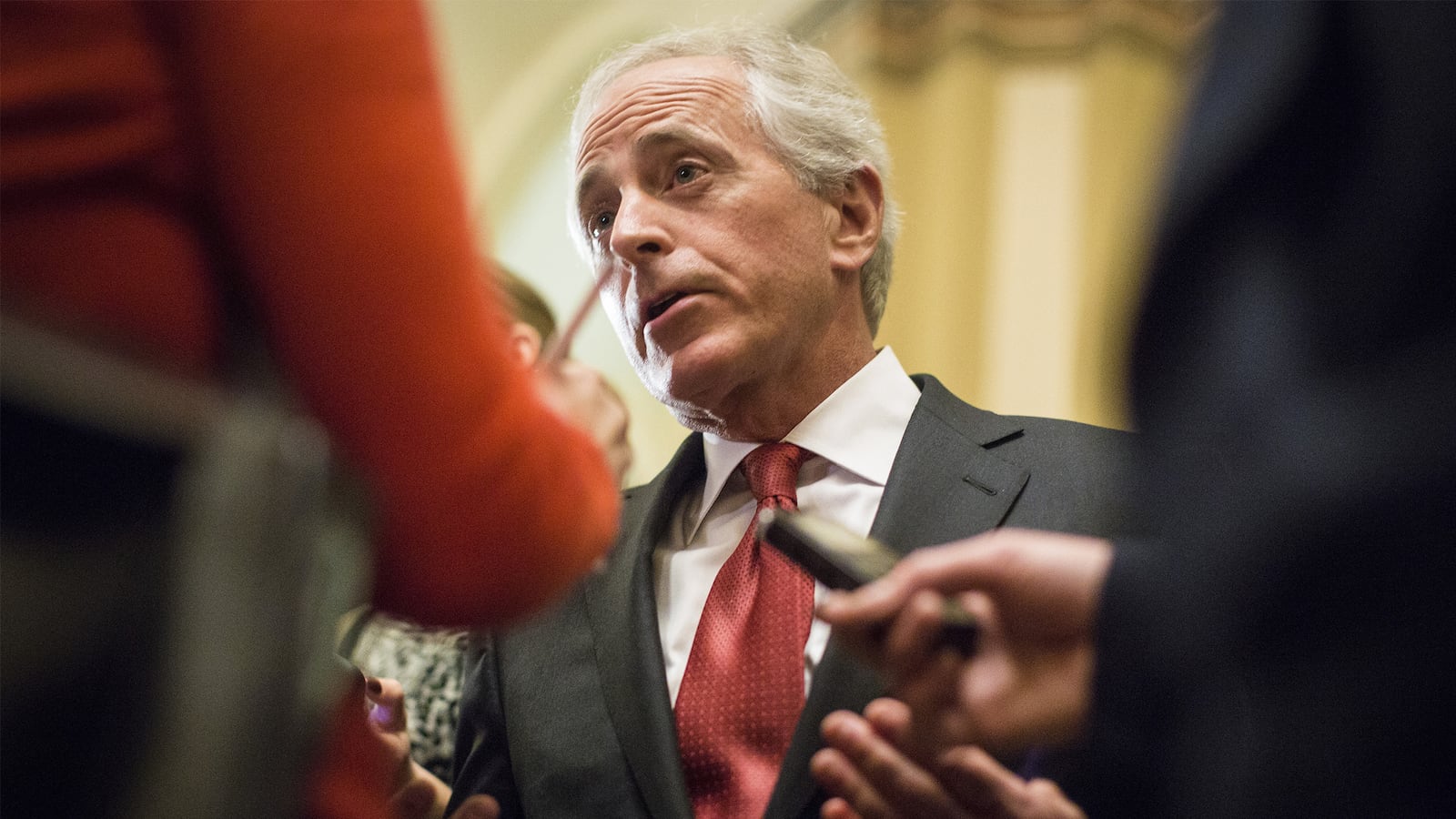Behind the scenes, Republicans are wondering if sending an open letter to Iran’s leaders was the best strategy to keep a bad nuclear deal from being negotiated.
Earlier this week, 47 Republican senators signed a letter warning the Iranian government that many of them would remain in office long after President Barack Obama’s second term was over, meaning any deal reached between the U.S. and Iran could be easily reversed by the next president.
But even among Republicans whose offices have signed the letter, there is some trepidation that the Iran letter injects partisanship into the Iran negotiations, shifting the narrative from the content of the deal to whether Republicans are unfairly trying to undercut the president.
“Before the letter, the national conversation was about Netanyahu’s speech and how Obama’s negotiations with Iran are leading to a terrible deal that could ultimately harm U.S. national security. Now, the Obama administration and its Capitol Hill partisans are cynically trying to push the conversation away from policy, and towards a deeply political pie fight over presidential and congressional prerogatives,” said a Senate Republican aide whose boss signed the letter.
However, while some on the Republican side are now rethinking the wisdom of sending a letter, none of the 47 Republican signatories are recanting their support for it or signaling an intent to do so.
Republican Sen. Bob Corker, the chairman of the Senate Foreign Relations Committee, did not sign the letter.
“I didn’t think it was going to further our efforts to get to a place where Congress would play the appropriate role that it should on Iran,” Corker told The Daily Beast. “I did not think that the letter was something that was going to help get us to an outcome that we’re all seeking, and that is Congress playing that appropriate role.”
The open letter, organized by freshman Sen. Tom Cotton, was first sent around by Senate staffers in early March. Last Wednesday, with a handful of senators already committed to the letter, Cotton brought up the issue in one of the Senate GOP’s regular weekly luncheons.
“I immediately knew that it was not something that, for me anyway, in my particular role, was going to be constructive,” Corker said. “I didn’t realize until this weekend that it had the kind of momentum that it had.”
Sen. Jeff Flake was another Republican who declined to sign the letter, telling reporters Tuesday that there was already “a lot of animosity” between Congress and the White House, and that the Iranian nuclear threat was “too important to divide us among partisan lines.”
“I just didn’t feel that it was appropriate or productive at this point. These are tough enough negotiations as it stands, and introducing this kind of letter, I didn’t think would be helpful,” Flake said.
Republican aides were taken aback by the response to what what they thought was a lighthearted attempt to signal to Iran and the public that Congress should have a role in the ongoing nuclear discussions. Two GOP aides separately described their letter as a “cheeky” reminder of the congressional branch’s prerogatives.
“The administration has no sense of humor when it comes to how weakly they have been handling these negotiations,” said a top GOP Senate aide.
Added a Republican national security aide, “The Senate should have a role. It would make any agreement have some sort of consistency and perpetuity beyond the president. And it would also be buy-in for the American people. Right now it’s just an agreement between the President of the United States and whoever the final signatory to the agreement is.”
Supporters of the White House’s ongoing negotiations with Iran over its nuclear program pushed back hard against the letter, with some even citing a law written in the 18th century (and not applied since 1803) to say that the senators engaged in illegal conduct by communicating with a foreign government to undermine the U.S. government’s foreign policy.
Democratic Sen. Bill Nelson said he was “appalled and saddened” by the open letter.
“What it sends is a message to the rest of the world that we are not united,” Nelson said.





